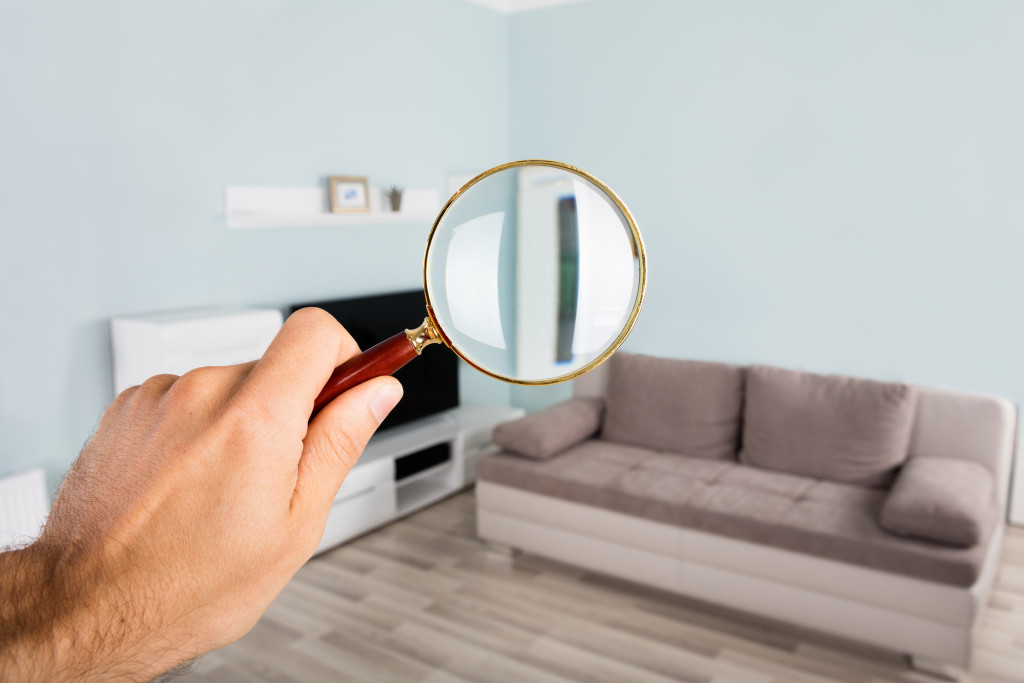In 2020, over 5.64 million existing homes were sold in the U.S. with a median price of $358,700. According to the National Association of Realtors, only about 8 percent of these homes were for sale by owners. The majority of the sales are agent-assisted.
These numbers show that businesses in residential real estate are thriving—if you know how to do it right. Some home sellers make various mistakes before selling properties. One of them is not consulting with a home inspector.
Why Consult a Home Inspector?
With plenty of properties at your disposal, you may not be aware of every single issue each might have. This can result in buyers’ own inspection turning up various defects and issues, which can then turn price negotiations in their favor.
When you catch these issues beforehand, though, you can make sure the properties you’re selling are in their best possible condition.
With that said, we listed down the top things you need to check with your home inspector before marketing and selling your properties.
Grounds
The grounds are partially responsible for a property’s curb appeal, as well as its safety. Inspecting the grounds before sale ensures that it won’t negatively affect the price of the property.
Landscaping is a crucial part to inspect. You need to make sure that the walkways are in good condition and that the greenery is well-tended to. It’s also important to check those wooden elements such as fences, sheds, and retaining walls have no signs of rotting or termite damage.
Apart from these, the threat of standing water should be addressed as well. Property owners must ensure that drainage and downspouts direct water away from the house. If not, they can damage the property, such as create leaks
Exterior Surfaces
Apart from the grounds, you must also have properties’ exterior surfaces inspected. These include the roof, exterior doors, and windows.
For the roof, shingles should be complete and intact instead of having missing or broken patches. You must also check for the gutters and make sure they’re not showing signs of rust and decay and that they’re attached securely to the main structure.
The inspection should also go over window panes and frames and check for rot, decay, and cracks.
Miscellaneous
Apart from the physical condition of a property, inspections should also cover often-unseen issues, such as carbon monoxide and radon gas.
Carbon monoxide poisoning is common in properties with fuel-burning appliances or attached garages. This is why it’s important for residential properties to have carbon monoxide detectors.
Radon gas is more tricky. It comes from the breakdown of radioactive metals in rocks, soil, and groundwater. The gas, when it forms, is usually strongest in crawlspaces and basements. You can have a home radon test done on your properties to make sure the dangerous gas isn’t present.
Interior Spaces

There are plenty of things to check inside a property for sale, no matter the room. In general, floors, walls, and ceilings must appear straight. If warping occurs, it’s a sign that there are problems between the walls, roof, and the ground.
The inspection should also take note of cracks in walls or ceilings, the quality of flooring materials, and the state of paint or wall coverings. Door latches, light switches, and electrical outlets are also worth looking into to make sure they’re functioning properly.
Kitchen
Plenty of things can go wrong in the kitchen, from leaking pipes under the sink to dishwashers with drainage problems.
It’s also crucial to have all electrical outlets up to code in your kitchen since you’re working with the dangerous combination of electricity and water. This is why all receptacles within 6 feet of a sink must have a ground-fault circuit interrupter (GFCI).
Bathrooms
Beautiful bathrooms attract a lot of buyers, so before putting yours up for sale, it’s best to have it inspected.
First of all, the bathroom sinks, tubs, and toilets must all be working properly. Check if the first two drains well and if the last one flushes well. Since a majority of them are made from porcelain, it will also help to check them for stains.
Attic
The attic tends to be forgotten in home inspection sessions, but one miss and it can be a huge burden for buyers of the property.
The inspection should look for signs of leaks, such as stains on the underside of the roofing. There should also be no evidence of any decay or damage to the structure. Ventilation and insulation in the attic must also be checked to see if they need improvements.
Professional home inspectors know to do all of these, but it doesn’t hurt to have you aware of what issues to focus on. With this room-by-room checklist, you can make sure your real estate properties are in tip-top shape before putting them on the market.

